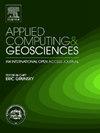面向矿产资源实地调查的轻量级知识图驱动问答系统
IF 3.2
Q2 COMPUTER SCIENCE, INTERDISCIPLINARY APPLICATIONS
引用次数: 0
摘要
与矿产资源调查相关的地球科学数据已成为政府和矿业公司必不可少的数字资产。地球科学数据量的快速增长使快速获取知识成为一项挑战。在这项研究中,我们提出并构建了一个工作流,该工作流采用知识图谱技术、深度学习、问题模板和匹配算法,为参与矿产资源调查的现场地质学家提供轻量级的问答服务。首先,利用基于深度学习的地质实体及其语义关系识别,结合关系数据映射,构建基于本体模型的矿产资源调查知识图谱。然后,我们采用问题模板匹配、地质实体识别模型和句子转换来确定最优问题模板,并生成基于Cypher语言的知识图知识获取查询语句。随后,我们利用一个子图和一个简短的摘要来表达结果。与大型语言模型和检索增强生成的比较表明,我们的解决方案适用于在具有低性能设备、数据隐私问题和狭窄主题的恶劣网络环境中的基于现场的矿产资源调查。研究结果还表明,为了提高知识图驱动问答系统的性能,需要进一步研究地球科学预训练模型、信息丰富的问题模板库和多模态知识图。本文章由计算机程序翻译,如有差异,请以英文原文为准。
A lightweight knowledge graph-driven question answering system for field-based mineral resource survey
Geoscience data associated with mineral resource surveys have become essential digital assets for governments and mining companies. The rapid increase in the volume of geoscience data makes it challenging to acquire knowledge quickly. In this study, we proposed and built a workflow that employs knowledge graph techniques, deep learning, question templates, and matching algorithms to provide a lightweight question-answering service for field-based geologists involved in mineral resource surveys. Initially, we utilized deep-learning-based geological entities and their semantic relation recognition, along with relational data mapping, to construct the mineral resource survey knowledge graph based on the ontology model. We then employed question template matching, a geological entity recognition model, and a sentence transformer to determine the optimal question template and generate a query statement for knowledge acquisition from a knowledge graph based on the Cypher language. Subsequently, we utilized a subgraph and a short abstract to express the results. The comparison with large language models and retrieval-augmented generation indicates that our solution is suitable for field-based mineral source surveys in a poor network environment with low-performance devices, data privacy concerns, and narrowly focused topics. The results also suggest that further studies on geoscience pre-trained models, an informative library of question templates, and multimodal knowledge graphs are necessary to improve the performance of the knowledge graph-driven question-answering system.
求助全文
通过发布文献求助,成功后即可免费获取论文全文。
去求助
来源期刊

Applied Computing and Geosciences
Computer Science-General Computer Science
CiteScore
5.50
自引率
0.00%
发文量
23
审稿时长
5 weeks
 求助内容:
求助内容: 应助结果提醒方式:
应助结果提醒方式:


